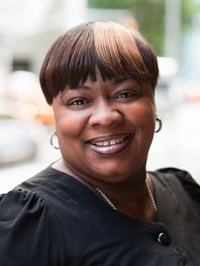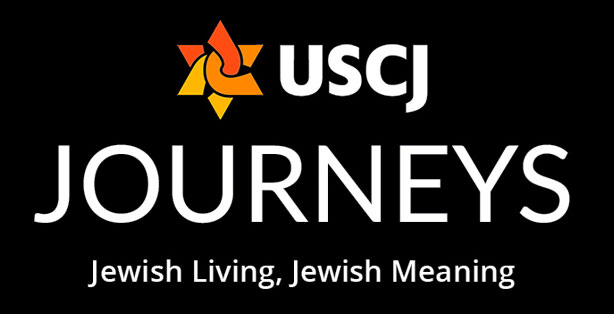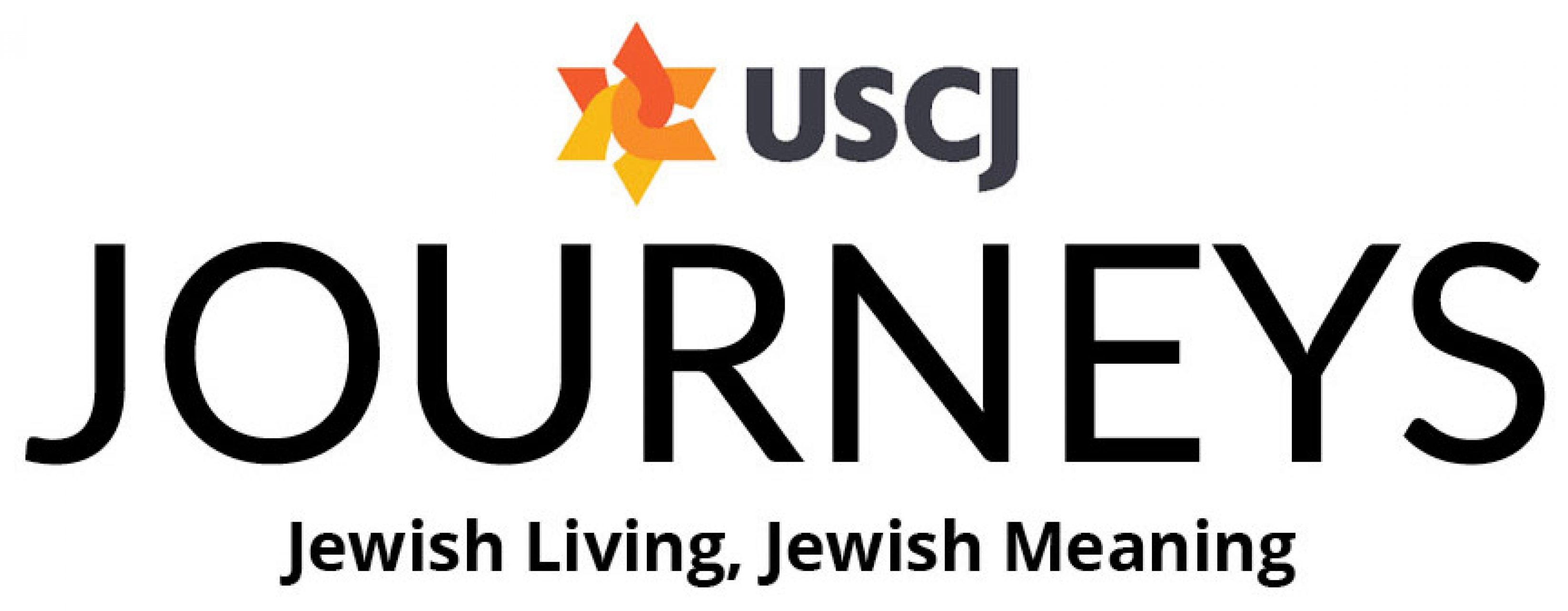By Genea Moore
“The basic dynamics of conversion are summed up for me in the words Leave-Arrive, End-Begin, Shed-Emerge. These are the tensions of conversion and spiritual awakening.”—Sue Monk Kidd
 As we prepare for the festival of lights and all of the joy that comes along with the season, it dawns on me that at the same time I will be celebrating the third anniversary of my conversion. After going through conversion classes, before you attend the mikveh, each convert is expected to share their spiritual journey. I hope you will enjoy reading mine below…
As we prepare for the festival of lights and all of the joy that comes along with the season, it dawns on me that at the same time I will be celebrating the third anniversary of my conversion. After going through conversion classes, before you attend the mikveh, each convert is expected to share their spiritual journey. I hope you will enjoy reading mine below…
Growing up in a Methodist home, you learn you are expected to be a servant of G-d at every level. This means you are in church not just on Sunday, but every day that the Pastor, or any member of the lay leadership, need you to be there. When this is the only thing that you know, it is what you do…
How awkward to think about a journey you sometimes think took too long and has some parts you may want to forget.
Exploring Judaism has been more than a way to learn about the Jewish religion, it has proven to be a way to learn about life. My life.
Approximately two years ago, I engaged in a conversation with a very good friend of mine, who was so curious about what it was like for me to be this devout Christian working in a synagogue—which she considered to be the most Jewish of all Jewish places. After clearing up so many silly myths and explaining the difference between the denominations based on what I knew at the time, I began to express the respect I had for the uniformity of how services were performed each week and how each clergy interpret the weekly Torah portions so differently, while reading from the same place.
The two hours spent eating and conversing about my job actually turned out to be a conversation about me and if I was worshipping in the “right faith.”
As we prepared to part ways and walked to our respective cars, my friend looked at me and said, “If you’ve never thought about converting to Judaism, you should. They take black people, you know. You have a glow and speak with so much enthusiasm and admiration for this way of life; you don’t talk about church like that.” She proceeded to offer me a little more advice and said, “You seem to think your life is not going in the direction that you want it to go, and it could be because your relationship with G-d is not what it should be. Monsie (my nickname to old friends), if you do what you always did, you will get what you always got. Just think about it.” And so I did…
A few months after what I now call this life-changing conversation, the congregation at Central Synagogue was blessed to receive a book of sermons by its Senior Rabbi, Peter Rubinstein, which I began to read in my spare time. I became completely elated. Not only because he is such a great speaker, but because so many things he talked about resonated with the way I was feeling, the way I was thinking and the way I thought I should be living.
I now began to really think about how my life had been changing for years right before my eyes, and I didn’t even realize it. I noticed how I had been going to church less and less; how many times I stayed at work late and missed Bible study (something I would never have done in the past), how I began to compare my relationship with different clergy and realized that when going through the hardest times of my life, I received more comfort from a rabbi whom I worked for than from a pastor whom I knew most of my adult life; how good it felt to actually say how I feel about religion, life, love and relationships and not be judged or considered a hypocrite. What an amazing feeling!
Before saying anything to anyone, I began to read the weekly Torah portions online and create my own mental drash to get me through the week. I took the most positive part of each week’s portion and found a way to make it make sense in the work I was doing and the help I needed to get through the challenges each day could bring both personally and professionally. I also began to go back to church weekly just to see if I felt differently and to see if my drash and the pastor’s sermon had anything in common. After about a month, it was evident which route I wanted to take.
My next step was to discuss my decision to change faiths with my family. Before I did that, I decided to speak with my friend who inspired me to really consider that this might be the missing link in my life. I shared with her my decision and all the things I had been doing since our initial conversation to assure myself that this was the right thing for me. She surprised me with tears—which I wasn’t ready for and didn’t really know how to take. She explained that she was crying because she was so excited about all of the blessings I was going to receive by not just having a better relationship with G-d, but by having the right relationship with G-d. I’m still trying to understand what that means, but each day it becomes a little clearer.
After speaking with each member of my family individually and receiving the amazing responses and overwhelming support, I was on my way to being a Jew.
After spending so much time thinking about changing faiths, I had to make a decision to convert fully and officially or just become an avid worshipper at a local temple. It occurred to me that what I did enjoy about church was being active there. Whether I was ushering, cooking, working with the youth or just lending a helping hand, it felt good. It also occurred to me that one of the most enjoyable parts of my job is working during the High Holy Days and providing the level of comfort that I do to the congregants and the staff. Therefore, it was a must that I go all the way and become a part of a community.
As I began to think about my next steps, I felt a little nervous and figured that I should start by speaking with Rabbi Rubinstein, not only to discuss my decision, but also to hear his honest input on the challenges that I might be facing. His first question, without even blinking, was WHY? I was a little shocked but amazingly very glad he asked. For the first time, I had an opportunity to say out loud what I was feeling about my own spirituality, and how lucky was I that he understood? He told me I should start by reading Jewish Literacy by Rabbi Joseph Telushkin. As I began to read this huge book, I realized there are many Jewish people who are just as ignorant as I am when it comes to living a Jewish life. What a perfect book for the rabbi to suggest. How did I not know about this book? It touched every subject one would want to know about Jewish history and tradition from the beginning of time to the Holocaust to the Jewish calendar, just to name a few. I won’t lie, the book lost me a little bit as it began to talk about Zionism, but brought me right back with Jewish ethics and basic beliefs. Although many things I read will be good knowledge for conversations I may or may not ever have, the Jewish ethics are what I plan to live by.
Amazingly enough, as I started to move right along and meet with Rabbi Lisa Rubin, who runs Exploring Judaism and is the person who will help me through this journey and kind of hold my hand step by step, her initial question was the same as Rabbi Rubinstein’s: WHY? After meeting with Rabbi Rubinstein and reading Jewish Literacy, my answers were a little clearer even to myself and I was even more confident when I expressed them. As I listened intently about all of the things I needed to do to convert, including six months of classes, an essay that describes my journey, a project, the Bet Din—the jury of three rabbis and the mikveh—the ritual bath, I thought, “Wow, all of this just to change your religion?” However, I was all for it and very serious about making it the best experience of my life.
My first night of Exploring Judaism was going to be a challenge or so I thought. As I made my way across the street to the classroom from my office, I was a little uneasy because I thought, What if my colleagues see me going to class, am I going to have to answer a bunch of questions? Am I going to be the new office gossip? Then it dawned on me: I am doing a good thing, who cares who knows? The first person I saw was Stephen from the maintenance department, with whom I rarely have conversations. He made me feel so good when he said, “Hi Genea, are you taking this class?” I proudly responded, yes. He then said, “Good for you and good luck; don’t forget to send me an invite to the party!” With much pride, I responded, “Absolutely!”
As I entered the class, I realized I was one out of two single people and the only black person, but it felt okay and I was prepared to learn what I didn’t know and share what I did know. What a great experience Exploring Judaism (EJ) turned out to be for me, and how it has begun to change my life.
My EJ class ended just a few days before the High Holy Days began and learning all that I did in class made the holidays more meaningful for me. I began to really embrace the season and use the time to reflect on all the good things that the past year has brought and the even better things to come.
I’ve been asked several times what my plans are after conversion and without hesitation, each time I have replied the same answers: I plan to continue to study Torah, to join a congregation and become an active member of a community, learn to read and write Hebrew and continue to step outside of myself and watch myself evolve.


